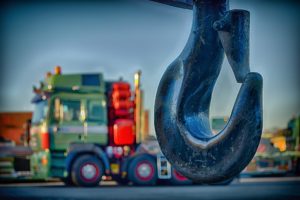
By Kurt Valentine, Staff Writer
They park along Pittsburgh’s major thoroughfares waiting for an accident. Once they get word of an accident, they race to the scene. The winner of the race gets to tow the car. They are called “chasers”.
In 2009, Big Dawg’s Towing, a Pittsburgh towing company, posted multiple YouTube videos showing one of their drivers racing to accident scenes around Pittsburgh.[1] The videos show the driver completely disregarding traffic laws and the safety of other motorists. One video titled “Chasing a wreck” shows the driver crossing a double yellow line on a two-lane road to pass two vehicles, splitting two lanes of traffic to run a red light, and running numerous stop signs.
In addition to endangering other motorists by racing to accident scenes, once the “chasers” get on scene, they “try to convince the traumatize[d] accident victim to turn over their car,” although, in many cases they will tow the vehicle “without the [owner’s] permission.”[2] The chasers then charge the owner exorbitant towing and storage fees.
In a 2015 report by CBS’s Pittsburgh affiliate, KDKA, reporter Andy Sheehan talked to some of the owners victimized by chasers.[3] An individual he interviewed was in an accident and had three chasers show up to the scene before police and EMS arrived. One chaser hooked up his car before he even agreed to have his car towed.[4] After three days of tracking down who towed his car, “it showed up at a garage” with a $1,005 bill from Big Dawg’s Towing.[5]
Pennsylvania state representative Dom Costa was interviewed in the report and stated, “It’s time these tow truck operators become accountable. . . They’re a danger to themselves and other people, and they’re ripping people off and that’s got to stop”.[6]
The current Pennsylvania statute, the Towing and Towing Storage Facility Standards Act, enacted in 2012, provides that tow truck drivers must be summoned to the scene of an accident by the operator or owner of the vehicle, or by law enforcement.[7] The owner or operator of the vehicle may summon the tow truck operator of the owner’s choice and designate where the vehicle is to be towed.[8]
If a driver is incapacitated or if the vehicle is a hazard, impedes the flow of traffic, or may not legally remain in its location in the opinion of law enforcement, then law enforcement can decide who tows the vehicle.[9] In addition, the tow truck operator cannot secure the signature of the vehicle owner that requires authorization to repair the vehicle or a signature that authorizes storage of the vehicle for more than 24 hours at the scene of the accident.[10]
Five years after the statute was enacted, it is not enforced.
As a student who has been commuting into downtown Pittsburgh on daily basis for the past two years, I see these chasers parked in the same places every day. On numerous occasions, I witnessed them driving aggressively; that is not uncommon. But two incidents stand out and highlight the need for enforced legislation in this area.
The first incident occurred during morning rush hour in bumper-to-bumper traffic. A tow truck operator, traveling at least 15-20-mph over the 35-mph speed limit, used a turning/bus lane as a driving lane to bypass traffic, then swerved back into the lane of traffic before the median started. If someone pulled into the turning lane, the results likely would have been devastating. Several minutes later, when I reached the next intersection, he was already hooking up one of the crashed vehicles.
The second incident occurred one week after I watched another news report on chasers. I saw an accident driving home around 9:00pm, so there was minimal traffic. It was just a minor fender bender and both cars were pulled off to the side of the road. Although both cars looked like they were drivable, four chasers were present at the scene. One of the drivers, a young woman, was visibly distraught standing on the sidewalk. Three of the four chasers were standing by her, presumably trying to convince her to turn over her car.
On March 28, 2017, Representative Costa held a hearing on the issue.[11] Witnesses from the Pittsburgh Police and insurance industry testified in support of legislation.[12] Costa’s bill would allow “municipalities to establish rotation lists, where licensed and reputable operators would take turns” and “prohibit towers from rushing to accident scene[s].”[13]
Legislation on certain towing practices is needed. It is evident that accident victims are unfairly gouged and motorist that share the road with racing tow trucks are endangered. Yet, any new legislation must be coupled with enforcement. Without enforcement, it is clear that the chasers will continue their current practices.
Sources
[1] https://www.youtube.com/user/bigdawgtowing/videos
[2] http://pittsburgh.cbslocal.com/2015/03/03/kdka-investigation-gets-results-rouge-tow-truck-operations/
[3] Id.
[4] http://pittsburgh.cbslocal.com/2015/02/24/kdka-investigates-rogue-towing-operators-ripping-off-victims/
[5] http://pittsburgh.cbslocal.com/2015/02/24/kdka-investigates-rogue-towing-operators-ripping-off-victims/
[6] http://pittsburgh.cbslocal.com/2015/02/24/kdka-investigates-rogue-towing-operators-ripping-off-victims/
[7] 73 Pa. Stat. Ann. § 1971.3 (LexisNexis, Lexis Advance through 2017 Regular Session Acts 1-34; P.S. documents are current through 2017 Regular Session Acts 1-34)
[8] Id.
[9] Id.
[10] Id.
[11] http://pittsburgh.cbslocal.com/2017/03/28/legislation-hearing-aims-at-reining-in-rogue-tow-truck-operators/
[12] Id.
[13] Id.